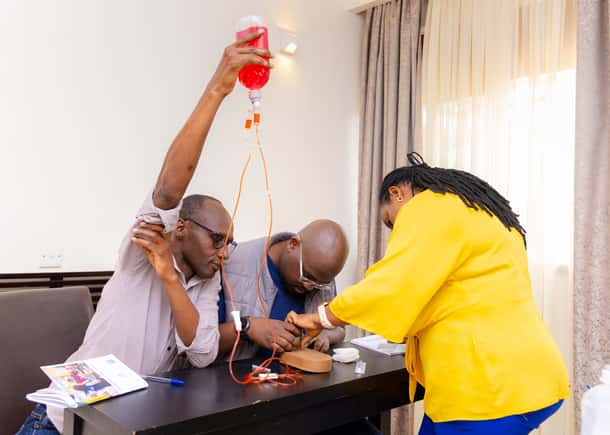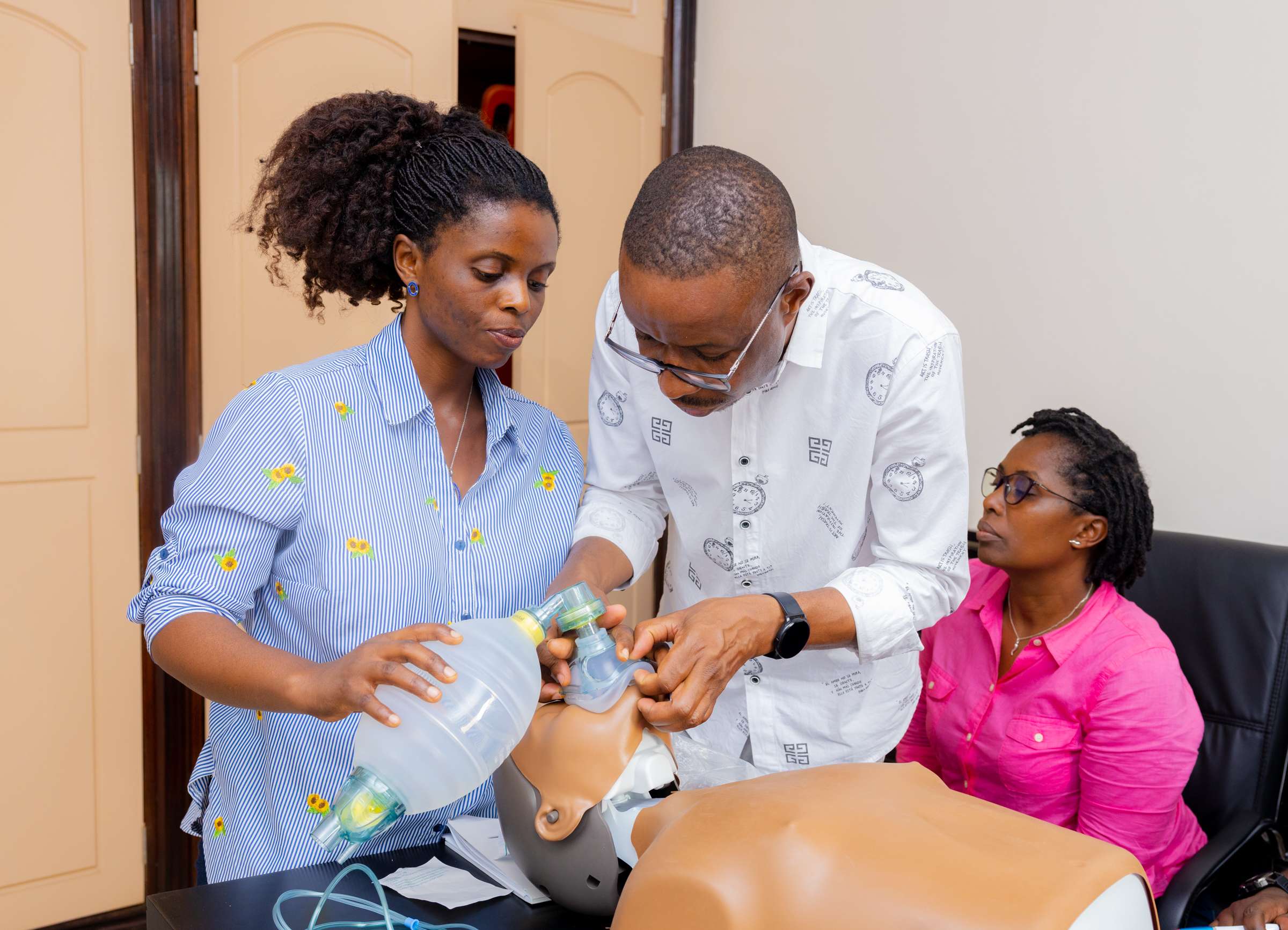Hundreds trained in new hybrid WHO Basic Emergency Care program pilot in Rwanda


Globally, 50% of all deaths are a result of time-critical emergency medical conditions. The burden of death and disability impacts low- and middle-income countries most. The World Health Organization's Basic Emergency Care (BEC) program was developed to address these preventable deaths.
To scale up this program and ensure affordability and long-term impact, Laerdal collaborated with the WHO to address challenges that were found to inhibit the expansion of the program including time away from clinical practice, access to hands-on training, cost, and transition from training to practice.
The newly developed 2-day BEC hybrid program integrates e-learning modules to minimize time away from clinical duties. A carefully designed Emergency Care Learning Lab includes training tools nested in a portable backpack, making simulation-based training more accessible and available for onsite refresher training.

Following successful pilot tests in Tanzania, the BEC hybrid course training was rolled out at the Africa Health Sciences University hospitals in Rwanda: Kibungo Hospital, Kibuye Hospital, and King Faisal Hospital in Kigali. So far, 145 healthcare personnel have been trained in both the online and practical sessions, with more than 300 more who have done the online and are awaiting the hands-on sessions.
At King Faisal Hospital, 37 participants, including emergency physicians and nurses, completed the hybrid course. They rotated through five training stations focused on critical areas: Airway, Breathing, Circulation, Disability, and Environmental Exposure. Additional skills in wound care, immobilization, and physical examination were also covered. Skills are trained for both adults and babies.

Under the guidance of instructors, participants practiced skills based on case scenarios, followed by hands-on sessions. Objective Structured Clinical Examinations (OSCEs) were conducted to assess their competencies, with feedback provided to enhance learning.
This hybrid program is huge advantage because they are learning at home and then coming ready for practice. It is very interactive.
This initiative supports ongoing collaborations with the WHO and other organizations dedicated to scaling up the Basic Emergency Care course, aiming to reduce preventable deaths and disabilities worldwide.